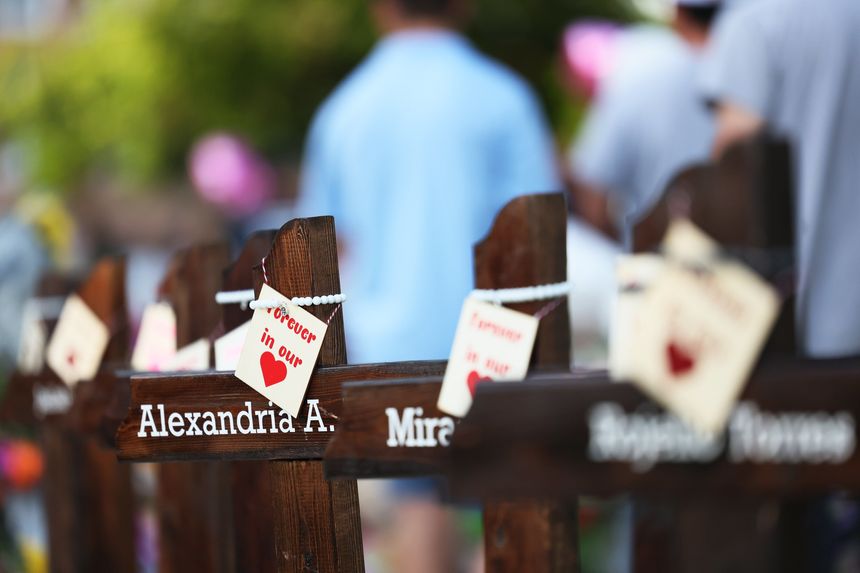A memorial for the victims of the Robb Elementary School mass shooting in Uvalde, Texas, May 29.
Photo:
Michael M. Santiago/Getty Images
Many Americans are understandably tired of prayers to end mass shootings. Familiar platitudes such as “thoughts and prayers to the families” seem hollow when offered without clear policy proposals. But the presence of prayer preserves the urgency for action and has since America’s inception.
In 1865, amid the Civil War,
Abraham Lincoln
was inaugurated to his second term as president. He delivered one of the shortest but most memorable inaugural addresses in our nation’s history. “Fondly do we hope,” he famously said, “fervently do we pray—that this mighty scourge of war may speedily pass away.”
Lincoln of course did not stop at prayer. A little over a month later he oversaw the Confederacy’s surrender to the Union army. But he couched the U.S. mission of victory in the language of prayer because those sorts of words transform a political cause into an existential need. Prayer is the language we use to express our most urgent and essential desires. I don’t pray for lower gas prices; I do pray for the end of school shootings.
While it’s understandable to be frustrated with those who offer such prayers, attacking them for it alienates many—of all political persuasions—who find comfort and urgency in prayerful words. Turning the important debate over the proper course of action on school shootings into an inquisition on prayer only makes it…

